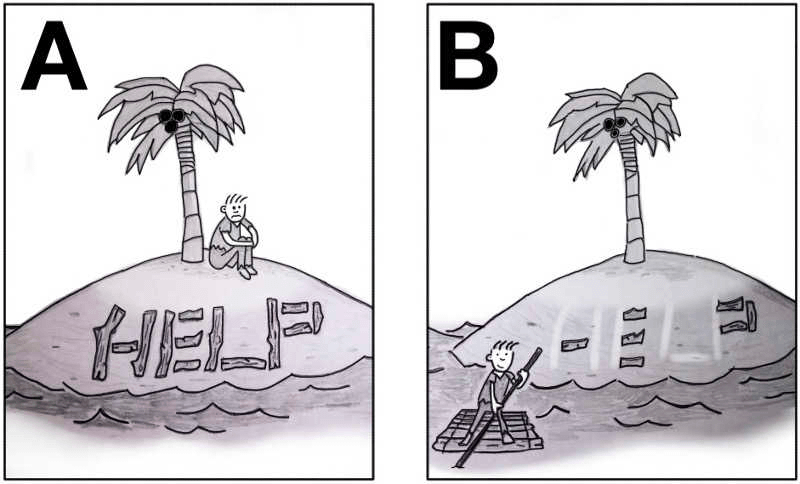How to spot high agency people
You know it when you see it.
Here’s my updated list of how to spot high agency people:
1. The golden question - Who do you call when stuck in a 3rd world prison cell? That’s the highest agency person you know.
2. Weird teenage hobbies - Teenage years are the hardest time to go against social pressures. If they can go against the crowd as a teenager, they can go against the crowd as an adult.
3. Treadmill energy - If you meet with them when you're tired and defeated, you leave the room ready to run a marathon on a treadmill with max incline.
4. You can never guess their opinion - The boxer who writes poetry. The advertiser obsessed with the history of war. The beauty queen who reads Nietzsche. If their beliefs don't line up with their stereotypes, they've exercised agency.
5. Immigrant mentality - If they've moved from their hometown, that's a good sign. If they've moved from their home country, that's an even greater sign. It takes agency to spot you're in the wrong place, resourcefulness to operationalise a move and a growth mindset to start from zero in a new location.
6. Sends you niche content - A low agency trap is to look at the social engagement of content before deeming its quality. High agency people just look at the content. They spot upcoming trends very early.
7. Mean to your face, nice behind your back - The social incentives are to be nice to people's faces and gossip behind their backs. To do the opposite requires agency because they're swimming against the social tide.
8. Quit something of prestige - The miserable management consultant who breaks free from their golden handcuffs to become a stand-up comedian has to overcome momentum, social shame and sunk cost fallacy. The high agency person lives many lives and isn’t afraid to reinvent themselves — regardless of the perceived social cost.
9. They don’t trust. They verify - A low agency trap is to be hypnotized by groupthink. High agency people refuse to passively download the current thing without first verifying it for themselves:
• “They say” —> Who is they?
• "Science says” —> What is the science? Can I see the primary sources?
• ”Misinformation” —> What is your theory of knowledge? Can you show me your first principles?
10. Self-taught learning machines - Whether it’s learning to play their favourite song on the Saxophone or deconstructing how 3D printers work — they start from zero and use agency to climb up the knowledge ladder. Tesla, Da Vinci and Darwin didn’t ask for permission from institutions to just do things.
11. They question the question - Before rushing to answer your question, they question whether it’s the right question to answer. They know the right answer to the wrong question is worse than no answer to the right question.
12. Non-fungible human - When they die, it doesn’t feel like a typical funeral; it feels more like an extinction event of a unique species. High agency people live like a fingerprint: One in 8.1 billion. Never to be repeated again. They think their own thoughts and act their own actions, regardless of the overton window.
13. Specific questions, rapid action - When they ask for your help, they respect your time by asking specific questions and avoiding vague ones. To show you appreciation for the time given, they follow up in freakish speed with a thank you and evidence of the advice actioned.
14. They pet the elephant in the room - If they sense an elephant in the room, they don’t avoid it. They talk to the elephant, feed it, and ask it why it’s there. They know the elephant in the room gets smaller every time they interact with it. In five minutes, they help shrink an enormous elephant you’ve been avoiding for five years into a cute baby elephant calf you can control.
15. Avoid underthinking and overthinking - Socrates once said: The unexamined life is not worth living. But the overexamined life is not worth living either. The Watts trap: “A person who thinks all the time has nothing to think about except thoughts. So they lose touch with reality and live in a world of illusions.” The high agency person knows one hour of reflection after ten hours of action is worth more than one hundred hours of rumination without any feedback from reality.
16. An infinite number of reframes - When they can’t bend external atoms in the physical world, they bend the neurons in their head instead. Charlie Munger was an obsessive reader. After a failed surgery, he was left blind in one eye with a strong likelihood of going fully blind. When asked how he would cope not being able to read, he replied in the blink of his one eye: “I’ve always wanted to learn braille.”



I discovered you and your concept of high agency through your podcast with Chris Williamson. I immediately went to read your full article and was captivated by it – I found myself wanting to dive deeper into every concept and the individuals you presented. It’s the best article I have read in a long time.
You were absolutely right: once you discover what agency is, there's no going back. This article perfectly complements the other one, and I loved it just as much. Thank you for the good work.
I write about exceptional people (people who, I realised after reading your article, are high agency) and teach their most important lessons using storyteling. I’m planning to do a special series covering the idea of high agency, inspired by your ideas. Excited!
One of the best things I’ve read on Substack